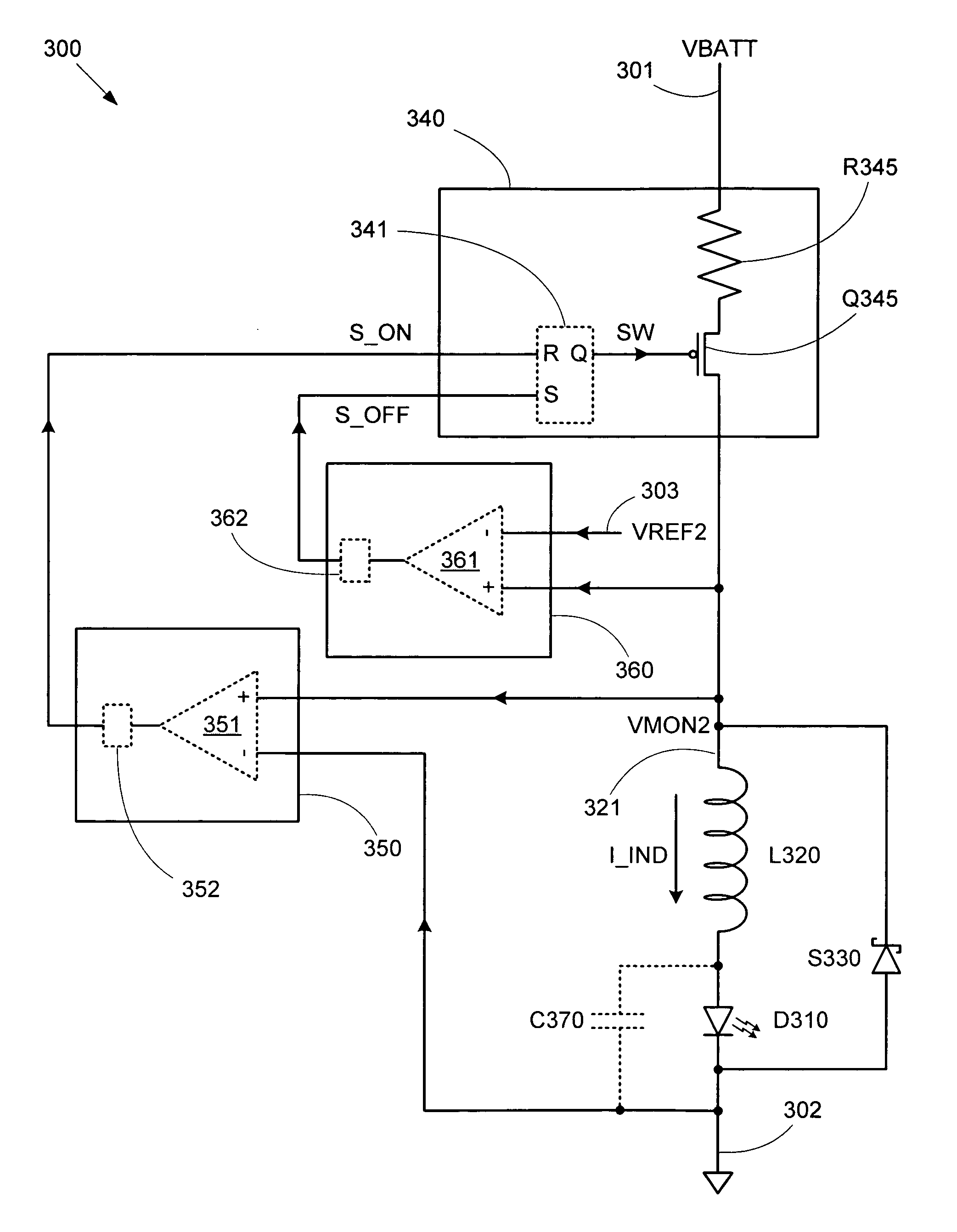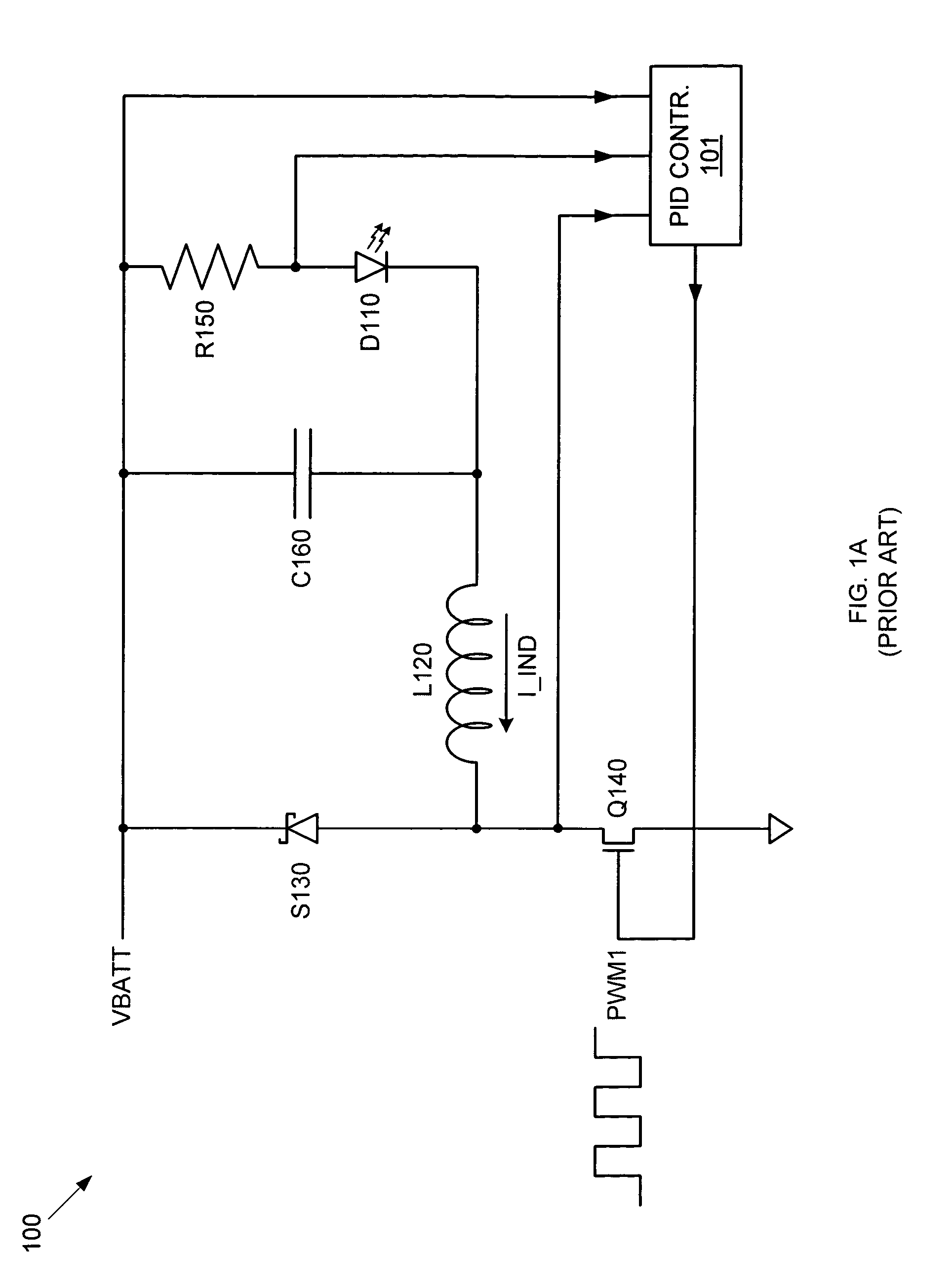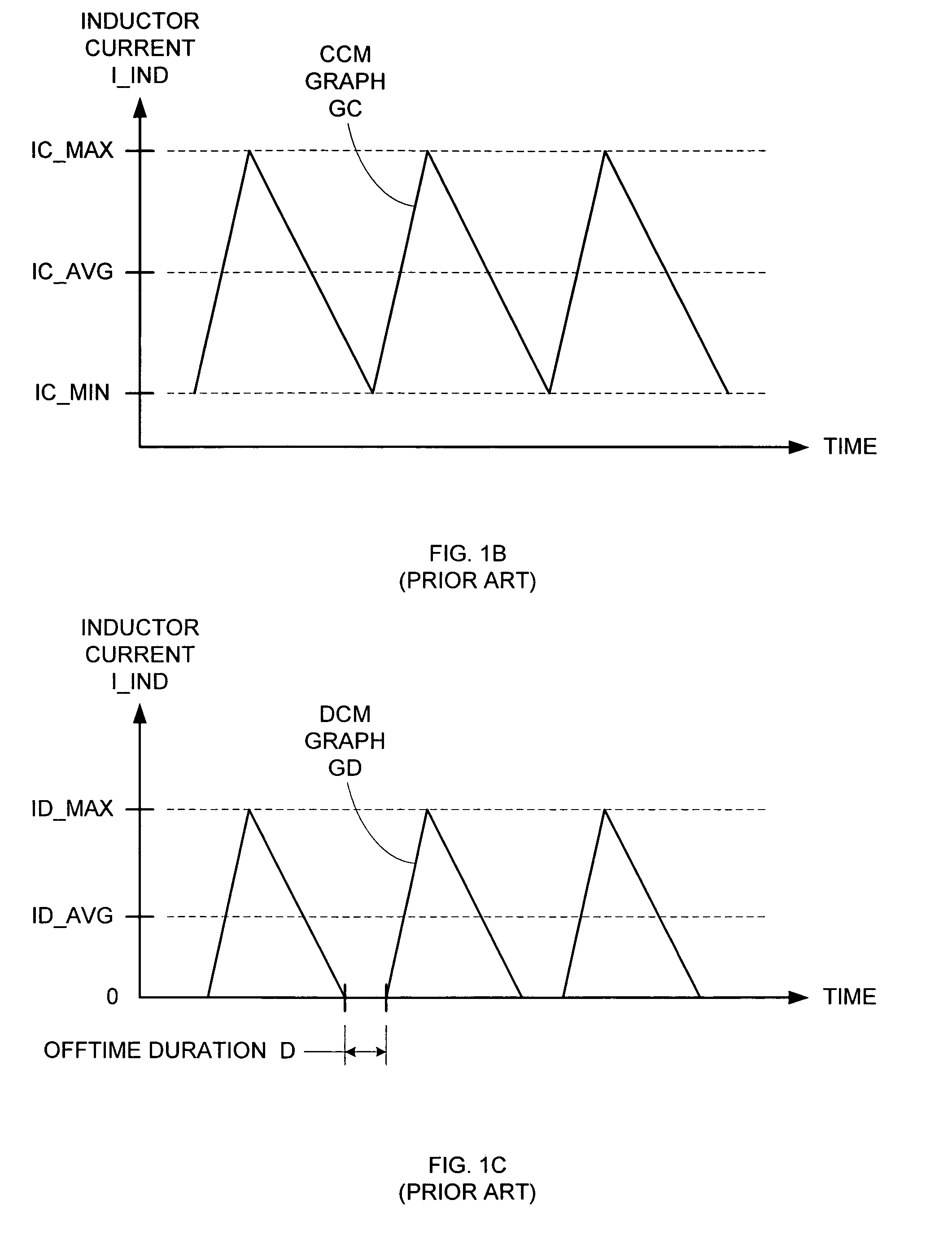LED current bias control using a step down regulator
a current bias and step-down technology, applied in the direction of electric variable regulation, process and machine control, instruments, etc., can solve the problem of load current dropping to zero, and achieve the effect of simplifying configuration requirements
- Summary
- Abstract
- Description
- Claims
- Application Information
AI Technical Summary
Benefits of technology
Problems solved by technology
Method used
Image
Examples
Embodiment Construction
[0028]Conventional switching regulator circuits require complex current monitoring circuitry and feedback control logic to generate a desired average load current. By using a simple control circuit to maintain the conduction mode at the crossover point between continuous conduction mode and discontinuous conduction mode, the average load current can be easily predicted, thereby eliminating the need for a PWM control signal and attendant current monitoring circuitry can be eliminated. Furthermore, by operating at this crossover conduction mode (XCM) in which the minimum load current is zero, the average current delivered by a switching regulator operated in this manner is simply a function of the maximum inductor current. Therefore, only the maximum inductor current need be defined to cause the switching regulator circuit to provide a desired average load current, thereby greatly simplifying configuration requirements.
[0029]FIG. 2A shows a circuit diagram of a step down switching reg...
PUM
 Login to View More
Login to View More Abstract
Description
Claims
Application Information
 Login to View More
Login to View More - R&D
- Intellectual Property
- Life Sciences
- Materials
- Tech Scout
- Unparalleled Data Quality
- Higher Quality Content
- 60% Fewer Hallucinations
Browse by: Latest US Patents, China's latest patents, Technical Efficacy Thesaurus, Application Domain, Technology Topic, Popular Technical Reports.
© 2025 PatSnap. All rights reserved.Legal|Privacy policy|Modern Slavery Act Transparency Statement|Sitemap|About US| Contact US: help@patsnap.com



